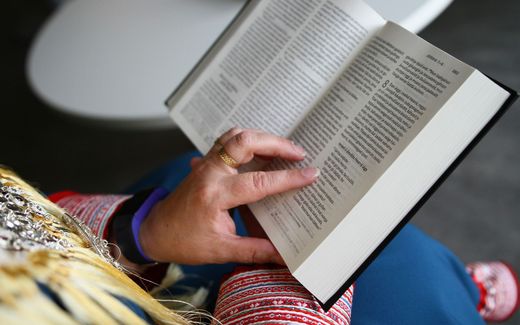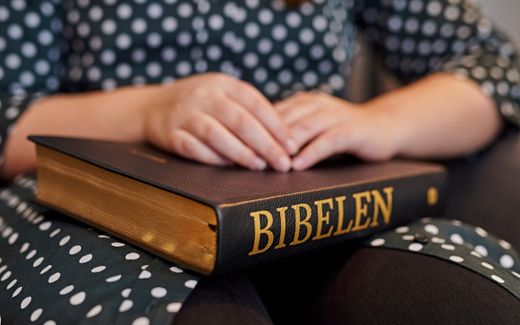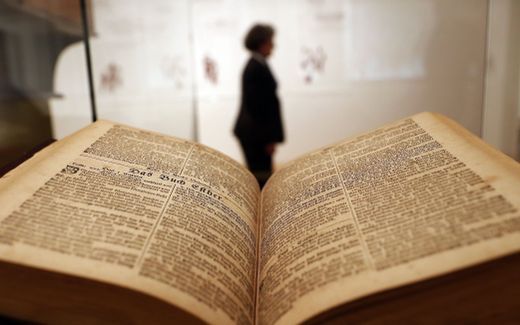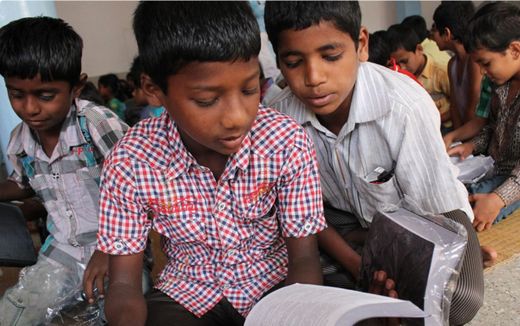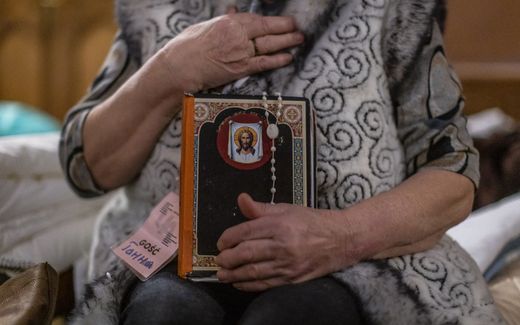With artificial help, the Bible should be translated into all languages by 2033
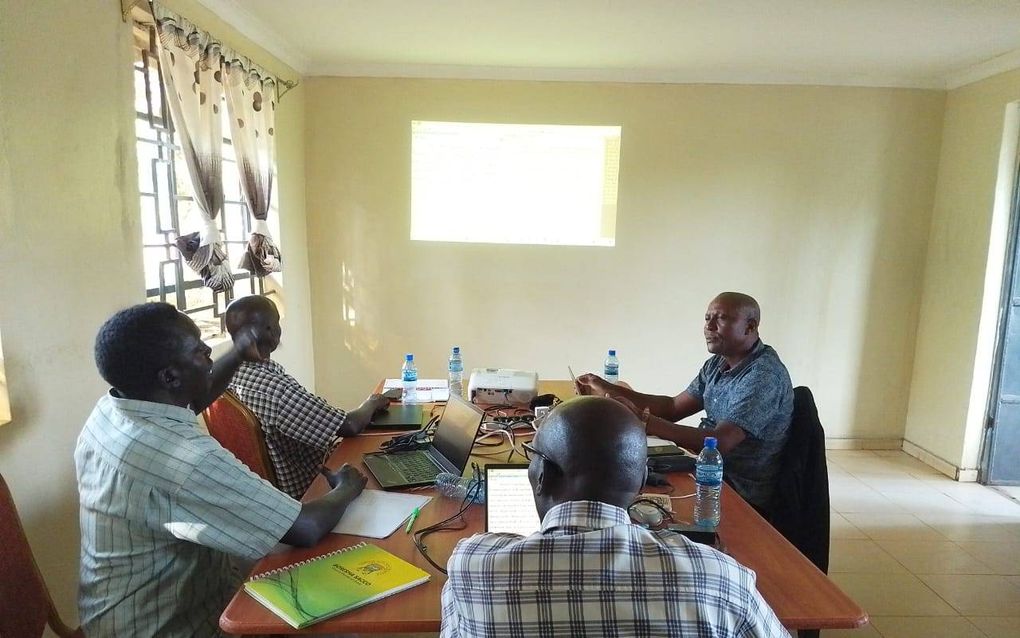
A local translation team consultant checking the book of Judges. Photo Facebook, Bible Translation and Literacy
European Union
Artificial intelligence can help translators with making new Bible versions. Researchers hope to speed up the process so that everyone can read the Bible in his own language by 2033.
There are 7,100 languages worldwide, Dagen writes. However, the Bible is translated into only 700. Many of the other languages are only spoken by a few people in the world, which makes the translating process a heavy task.
This could change with the use of artificial intelligence, two researchers believe. They started an investigation to see whether AI can be used in the translation process.
Local actors
"We want to reach all the languages on earth; the goal is to reach everyone", researcher Joel Mathew tells Religion News. Mathew is a research engineer who, together with computer scientist Hermjakob, launched Greek Room, an AI-powered technology which could be used for Bible translation.
The problem with languages that are only spoken by a few is that only local actors can do the translation, Vart Land writes. However, these local people often lack the resources to complete the process. "These are very difficult challenges, but large companies are not interested in solving them", Mathew says.
The technology of Greek Room will take over several aspects of the translation process that make it so time-consuming. For example, it will check the spelling, adjust words to ensure uniform translation and detect characters that don't fit with the text. Therefore, Greek Room should enable local churches to translate the Bible themselves.
Wycliffe Bible Translators in the United States supports the initiative. In addition, the project is part of a larger program that wants to have the Bible translated into all languages by 2033.
Related Articles


